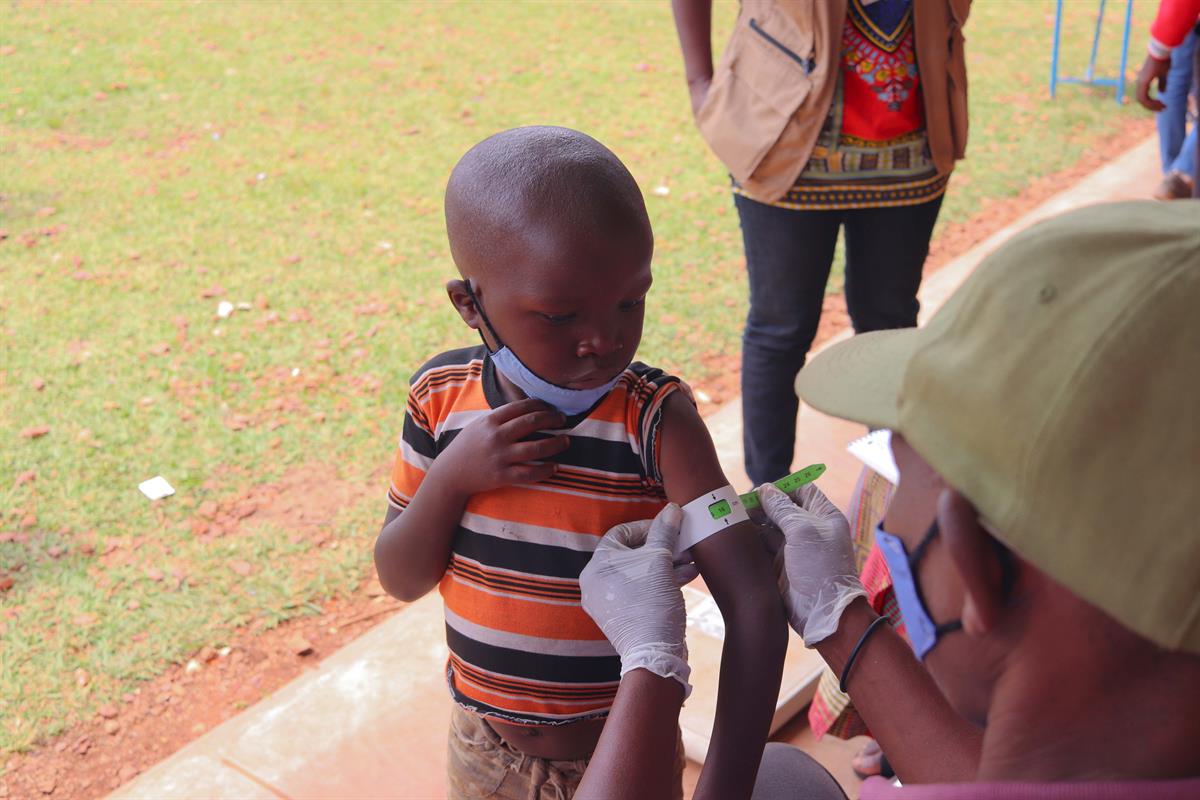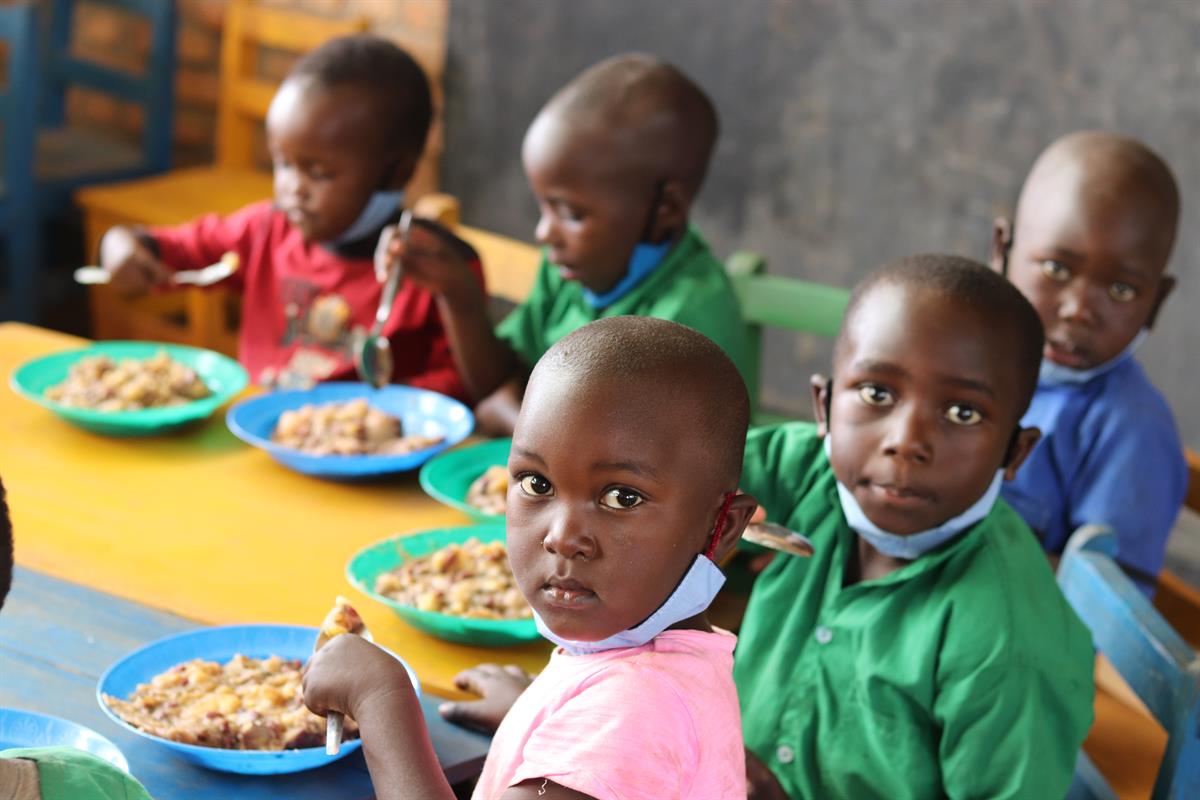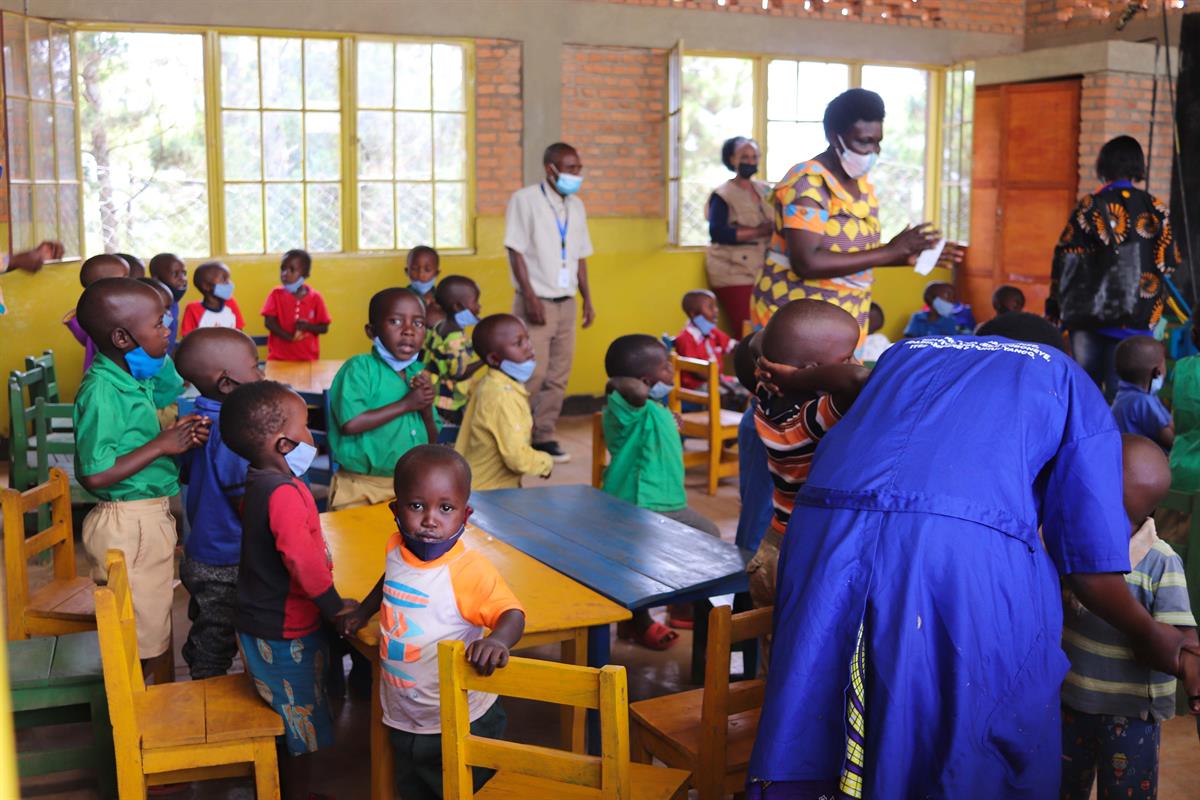In Rwanda, food security comes through the Early Childhood Development centres, where family, community and schools work together to provide children with health, care and protection.
This is made possible thanks to the PACOME (Parent, Communauté, Ècole) approach, through which parents receive training from qualified staff on how to care of children but also on how to run ECD centres.
The added value of this approach is its sustainability because the trained parents will in turn train other parents in the management of the facilities and in the children education.
Since 2018, thanks to the UNICEF-funded project "Scaling up Low Cost ECD of Scaling up Low Cost ECD Services and Capacity Building of Parents in Tea Companies and Cooperatives", 28 centres have been set up in Rwanda, enabling 6,500 children and their mothers to receive ongoing care, ensuring:
- regular health checks for the children
- quality sanitation services
- training in nutrition, parenting and children's rights

Nutrition is one of the key factors in ECD and here parents (caregivers) learn about the correlation between a healthy and balanced diet and healthy growth. But that is not all. In these centres, parents also learn how to create a vegetable garden, so that over time they become self-sufficient in the vegetable production.
After the training, parents come at the ECD on a rotational basis to take care of the children. Here they bring their harvest or other food to share with all participants: some of them prepare the food for the children while some stay with children in the playgrounds.


During the last internal evaluation conducted, health centre operators and lower primary school teachers working in the vicinity of AVSI-supported ECD centres were interviewed, to assess the development and growth outcomes of children attending ECD centres.